Death row inmate’s fight for his life shines light on use of jailhouse informants
Some states seek to change how prosecutors evaluate jailhouse informants.
James Dailey is staring death in the face.
Unless something drastic changes, it’s likely just a matter of when.
Dailey was sentenced to die in August 1987 for the brutal stabbing and drowning of a 14-year-old girl, Shelly Boggio -- a horrific crime that stunned the nation. Both he and his roommate, Jack Pearcy, were found guilty of the murder. Pearcy received life in prison but Dailey got death.
For more than three decades, he has sat on death row in Florida, all while proclaiming his innocence.
Time is now running out and Dailey, a 73-year-old Vietnam War veteran, is making a last-ditch effort to avoid execution.
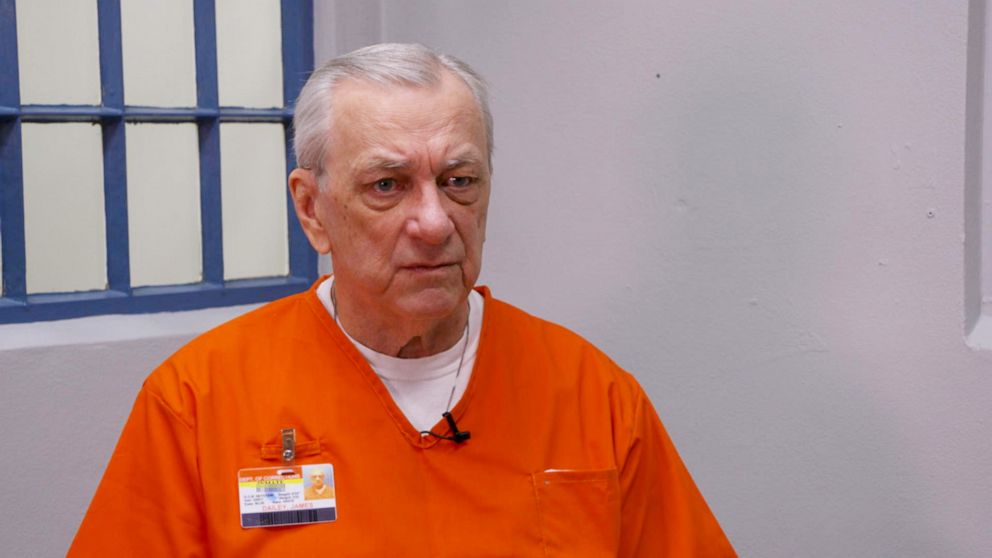
The entire case, and Dailey's life in fact, hang in large part on the word of Paul Skalnik, a 70-year-old former Texas police officer and a conman, who made a career out of being a jailhouse informant and whom ABC News found living in a Texas nursing home.
Ultimately, the world may never know if Dailey is an innocent man, as he claims, even after Pearcy changed his story and confessed to being Boggio's sole killer in a 2017 affidavit (that affidavit was later deemed inadmissible after Pearcy refused to answer questions about it on the stand and testified that its contents were false).
"I'm not afraid to die," Dailey told ABC News in an exclusive interview from death row. "What I'm afraid of is spending the rest of my life in prison for a crime I didn't commit, not being able to clear my name for my kids and my grandkids and my great-grandkids."
Dailey's case highlights the controversial use of jailhouse informants in criminal cases and the expectation of leniency from law enforcement and prosecutors for their information and testimony, which critics say creates an incentive to lie.
To that point, according to the National Registry of Exonerations, -- a joint project from the University of California Irvine, the University of Michigan Law School and Michigan State University College of Law -- nearly 200 people had their convictions overturned since 1968 in cases where a jailhouse informant was used at trial, including 27 who were sentenced to death.
There is also the issue of disclosure: whether and prosecutors and other law enforcement officials are forthcoming in court about promises made to informants.
While the Supreme Court has ruled that prosecutors have a constitutional obligation to disclose information that could potentially benefit the defense, advocates say this does not go far enough in specifying what type of information has to be disclosed.
And while a number of states have made attempts to address the issue of jailhouse informants by creating programs that monitor their use, some experts say these measures don’t go far enough.
A chilling murder
Robert Heyman, one of the prosecutors in Dailey's murder trial, told ABC News in an interview that he remembers Boggio's case vividly.
Boggio was a 14-year-old who was hitchhiking with her twin sister and a friend near St. Petersburg in May 1985 when they were picked up by Dailey and Pearcy.
After a night of partying, Boggio and Pearcy left together.
Witnesses said that Boggio was alone with Pearcy for a period of time, but the prosecution argued that Dailey rejoined the couple later that night and was the one who held the young girl’s head under water, drowning her.
The girl’s body was found with 31 stab wounds in the Florida's Intracoastal Waterway.
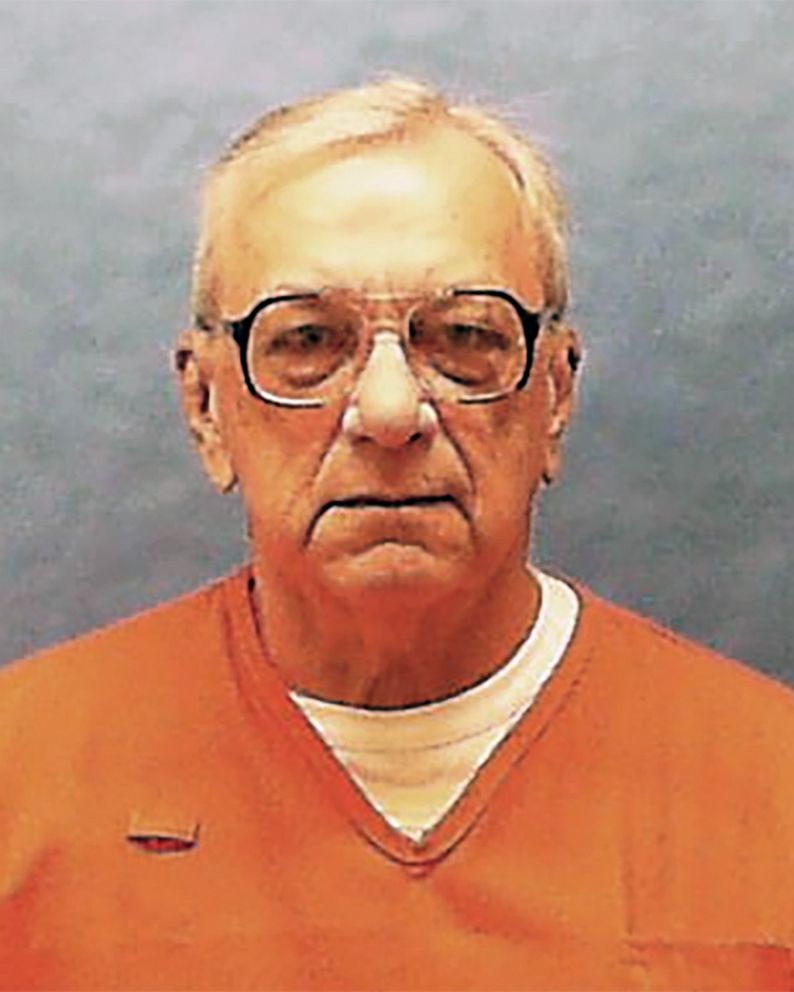
Pearcy was convicted of Boggio's murder in 1986 and a jury put him behind bars for life.
The following year, Dailey was also tried on first-degree murder charges. Unlike his roommate, he was sentenced to death.
Heyman maintained that Dailey was the most culpable and "decided to wade out there, waist deep, and hold her under the water until she drowned," he said. "I think it was powerful at the guilt phase, and it was powerful when the jury decided whether or not Dailey should get death."
But advocates point to a lack of physical evidence that implicates Dailey.
Heyman conceded in the same interview that there "was nothing that was found on her (Boggio) that could link her to either Dailey or Pearcy" and "the weapon, the--the knife was never found."
Specifically, there was no physical evidence to connect Dailey to the more than two dozen stab wounds Boggio sustained. Instead, prosecutors hinged their case on testimony from a friend who saw Dailey the night of the murder returning home wearing wet pants, Pearcy's statement after his arrest that Dailey killed the girl and the word of three jailhouse informants.
Dailey, who was 38 at the time of Boggio's death, has always maintained his innocence.
181 overturned cases
The use of jailhouse informants has been a subject of heated debate for years.
For instance, in Orange County, California, claims by public defender Scott Sanders sparked a years-long investigation by state prosecutors after Sanders argued that jailhouse informants had improperly obtained statements from his clients awaiting trial. He also claimed that Orange County prosecutors had withheld information about these informants that could have helped exonerate his clients.
Last year, the California attorney general -- which investigated the alleged misconduct with jailhouse informants -- announced they were dropping the investigation.
However, the U.S. Department of Justice and the Orange County District Attorney Todd Spitzer have ongoing investigations into the alleged misuse of jailhouse informants and are focusing on some previous prosecutions within the office, according to the Orange County Register.
Heyman admitted that there 'was nothing that was found on her (Boggio) that could link her to either Dailey or Pearcy.'
Since Spitzer was sworn in, in January 2019, no jailhouse informants have been used for any criminal trials and a policy was implemented where he has to personally approve the usage of any jailhouse informant, Kimberly Edds, spokeswoman for the Orange County DA’s office, told ABC News.
Experts say that the potential offer of leniency combined with the prospect of continued confinement creates a potent incentive for informants not to be truthful.
"Anytime there is a jailhouse snitch in a case, anyone with a shred of common sense can see that this is someone who is looking for something -- whatever that may be -- in exchange for cooperating," said Mark Bederow, a defense attorney who is currently appealing a 2003 murder case in New York against his client John Giuca, which was tied to the testimony of a jailhouse informant who later recanted.
"Informants don't do this out of the goodness of their heart and prosecutors have to deal with this [off] the bat," said Bederow.“The problem is you have to rely on the prosecutor to disclose the benefits [that the witness received]...If a prosecutor wants to rely on a snitch and is forthright with the information to let the defense expose that to the jury, it will give the jury the opportunity to weigh the case and have a fair evaluation."
In Dailey's case, there was increased pressure to win a death penalty conviction after prosecutors failed to secure the death penalty for Pearcy, according to Dailey's 2018 appeal.
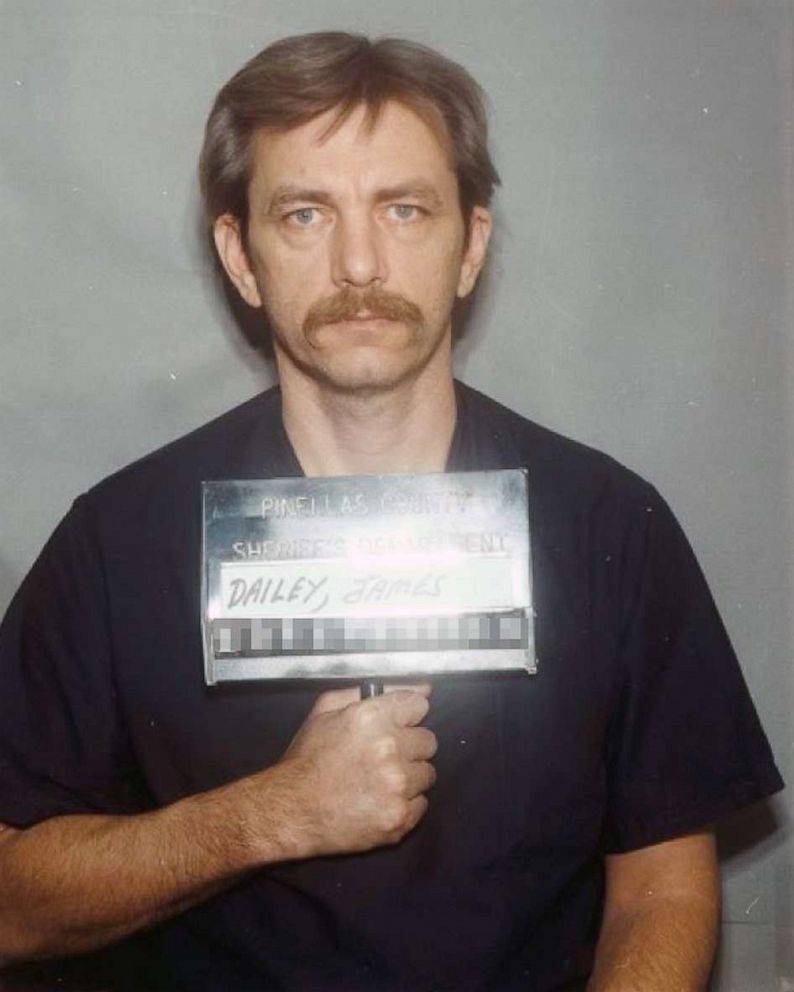
"My sense is that the prosecutor took that as a political loss," said Robert Dunham, the executive director of the Death Penalty Information Center. "The only other person they had as a potential suspect was James Dailey and there was evidence that connected him to Pearcy."
"They were roommates and was with him later on the night of the murder," Dunham added.
'Worst type of informant'
John Halliday, the lead detective on the case, went to the jail Dailey was housed in after Pearcy’s sentencing and began interviewing numerous inmates looking for a potential informant, according to court documents.
No one at that point said they had information about Dailey’s case, but his 2018 appeal states that days later, three other inmates came forward claiming that Dailey had spoken to each of them about the murder.
The testimony of these jailhouse informants "became the linchpin of the State’s case, even though none of their statements possessed any independent indicia of reliability," according to the document.
Skalnik's life as an informant started in Texas shortly after he was forced to quit the Austin Police Department in the 1970s for allegedly cashing bad checks, according to The New York Times Magazine and ProPublica, which partnered for an ongoing investigation on jailhouse informants.
Throughout Skalnik’s adult life, he has been in and out of jail on numerous charges and became a jailhouse informant for 18 murder cases where four of the defendants were sentenced to death -- including Dailey, according to The New York Times/ProPublica.
Dailey’s appeal blasted star witness Skalnik as a career conman who was convicted of “at least twenty-five crimes of dishonesty,” gave false statements about corrections officers to have them removed from the jail wings where he was serving and lied on the stand about his violent criminal history at Dailey’s trial.
'11 wrongful conviction cases were overturned in 2018 that were linked to a jailhouse informant, according to the National Registry of Exoneration.'
At the time Dailey was booked for Boggio’s murder, Skalnik was in Pinellas County Jail, the county where Boggio was murdered, on grand theft charges. Skalnik alleges Dailey first asked him for legal advice and then confided in him about the murder. It was a pattern that became a hallmark of how Skalnik claimed he received information, according to The New York Times/ProPublica.
Skalnik testified that Dailey confessed as Skalnik was passing by his cell on the way to recreation. "That Mr. Pearcy had actually held the young girl under," Skalnik testified. "Under, I did not know what 'under' was but he said the young girl kept staring at him, screaming and would not die. And he stabbed her and threw the knife away."
Dailey insists he never confessed to Skalnik.
“Everybody in jail knew he was a-- world's biggest snitch, you know? They knew he was an ex-police officer. I mean even the officers in the county jail told us not to talk to him, you know?” Dailey told ABC News.
Paul Skalnik told ABC News from a Texas nursing home that he was truthful and has no regrets
"Skalnik’s behavior while incarcerated precisely mirrored his behavior when not incarcerated: he was willing to say anything, regardless of the truth of the matter, and regardless of whom it might harm, if he believed that doing so would benefit him," Dailey’s legal team wrote in his appeal.
Prosecutors argued in their response to Dailey’s 2018 appeal that Skalnik willingly contacted authorities, did not receive a deal for his testimony and that the court had already rejected Dailey’s claim that Skalnik provided false information.
"You should never rely solely on the uncorroborated testimony of a jailhouse informant," said Dunham.
Dunham said that jailhouse informants are more attracted to high-profile cases such as Boggio's because they think they can reap a greater benefit from prosecutors and law enforcement for their cooperation.
"Skalnik, he was the worst type of informant, a serial snitch...yet he has somehow managed to come up with 37 confessions in murder and other felony cases. Eight cases where a defendant was charged with first-degree murder and four end up on death row," said Dunham. "The likelihood of that really happening is so remote, its laughable."
Skalnik has never been charged with perjury and told ABC News in a phone interview from his nursing home bed in Texas that he was truthful and has no regrets.
At the time of Dailey's case, Skalnik was facing the possibility of up to 20 years in prison if convicted of grand theft. Heyman said that he did not have a deal with Skalnik if he testified at the Dailey trial. However, five days afterDailey was sentenced to death, Skalnik was released from jail on his own recognizance and without bond despite a stern warning from his parole officer a year earlier that he was a flight risk, according to ProPublica.
He would go on to serve time for additional offenses, including 10 years in prison for the sexual assault of a child.
Policy changes
Connecticut, Illinois and Texas have made efforts to implement policies to monitor the use of jailhouse informants, like keeping a log of every informant's testimony and turning over disciplinary and visitor records among other documentation.
"If a prosecutor has a problem with disclosing any information, the question should be what's the prosecution trying to hide, transparency benefits the prosecution," said Dunham.
Another proposed action by Dunham is to tell the defense and the jury what expectations or plea bargains were made in exchange for the informant's testimony.
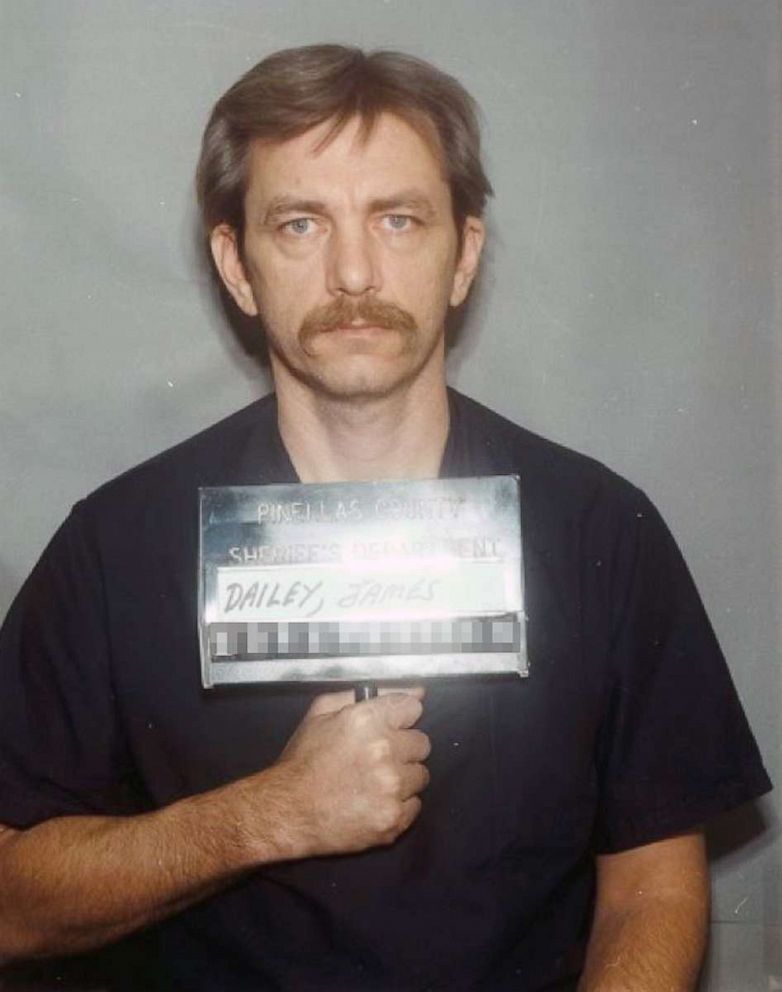
Duffie Stone, the president of the National District Attorneys Association (NDAA), said some of the suggested policies are "not necessary" since they are supposed to be a part of a prosecutor's "ethical obligation."
The Innocence Project has ongoing petitions in Colorado, Kansas, Maryland, Massachusetts and Oklahoma to reform policies on the use of jailhouse informants.
Texas is one example of a state passing reforms regarding government informants. In June 2017, the state passed legislation where prosecutors must keep a comprehensive record of the inmate -- previous cases in which they’ve testified and any benefit they received, along with a complete arrest record -- and to turn over that information to the defense, according to The Dallas Morning News.
Texas has had 366 wrongful convictions, according to the National Registry of Exonerations. Of those, 13 had a jailhouse informant involved with their case and three inmates were sentenced to death.
In Connecticut, Gov. Ned Lamont signed a wide-ranging bill in July 2019 that has created the nation’s first statewide system to track the use of jailhouse informants, including any benefits offered in exchange for their testimony, the Associated Press reported.
7% of 2559 wrongful convictions had ties to a jailhouse informant's testimony
In November 2018, Illinois lawmakers amended a law to now require judges to conduct a pre-trial hearing for all cases involving jailhouse informants in order to assess the reliability of their testimony. This policy had been in effect only for death penalty cases, which were then banned in the state in 2011.
"The states that are trying to implement rules to have hearings to seek reliability of an informant are in the right path, but the real issue is having all the information about the witness in front of the jury," said Bederow.
Dailey awaiting justice
Dailey breathed a sigh of relief in October 2019 when a federal judge temporarily tossed his Nov. 7, 2019 execution date in order for his newly assigned attorneys to research and file a motion to vacate his conviction and death sentence.
His appellate attorney, Josh Dubin, filed a motion on Jan. 21 seeking to vacate the conviction alleging a Brady violation -- failing to disclose evidence that's favorable to the defense or can discredit a witness.
"Skalnik had everything to gain," Dubin told ABC News. "And absolutely nothing to lose. He had pending charges against him. He got up on that witness stand, um, and he lied..."
According to Dubin’s motion, Skalnik "perjured" himself about his criminal history on the stand.
The New York Times/ProPublica investigation points out that Skalnik had been charged with “lewd and lascivious conduct on a child under 14” in 1982, but four months later, prosecutors agreed to drop the charge in a plea deal in exchange for Skalnik’s pleading guilty to grand theft.
Skalnik, according to Dailey's latest motion, lied when questioned by Dailey’s defense attorney, saying he had never faced charges of physical violence. In Florida, the “lewd and lascivious assault on a child under 14” is considered physical violence.
"The State knew, at the time of Mr. Dailey’s trial, that Skalnik had perjured himself before the jury. Mr. Heyman was apparently prepared to ask Halliday about Skalnik’s prior sexual assault charge, but, after Skalnik’s false testimony regarding his criminal history, Mr. Heyman did not. The State permitted Skalnik’s false testimony about his criminal history to stand uncorrected," according to this motion.
'8 overturned convictions in 2019 had a jailhouse informant involved, according to the National Registry of Exonerations.'
The 1987 trial transcripts do not indicate that the prosecutors corrected the record or entered a stipulation for the jury to consider that charge on Skalnik's criminal history during deliberations.
"We knew he'd had -- a history of a sexual assault allegation," Heyman said to ABC News. Heyman later acknowledged to ABC News that he never mentioned Skalnik’s sexual assault charge to the jurors, saying that it would only have been his responsibility to alert the jury had there been a conviction for sexual assault.
At a court hearing on on Feb. 20, Circuit Judge Pat Siracusa granted the defense’s request for an evidentiary hearing at which Pearcy will be called to testify. That hearing is scheduled for March 5.
A new execution date has not been set for Dailey.
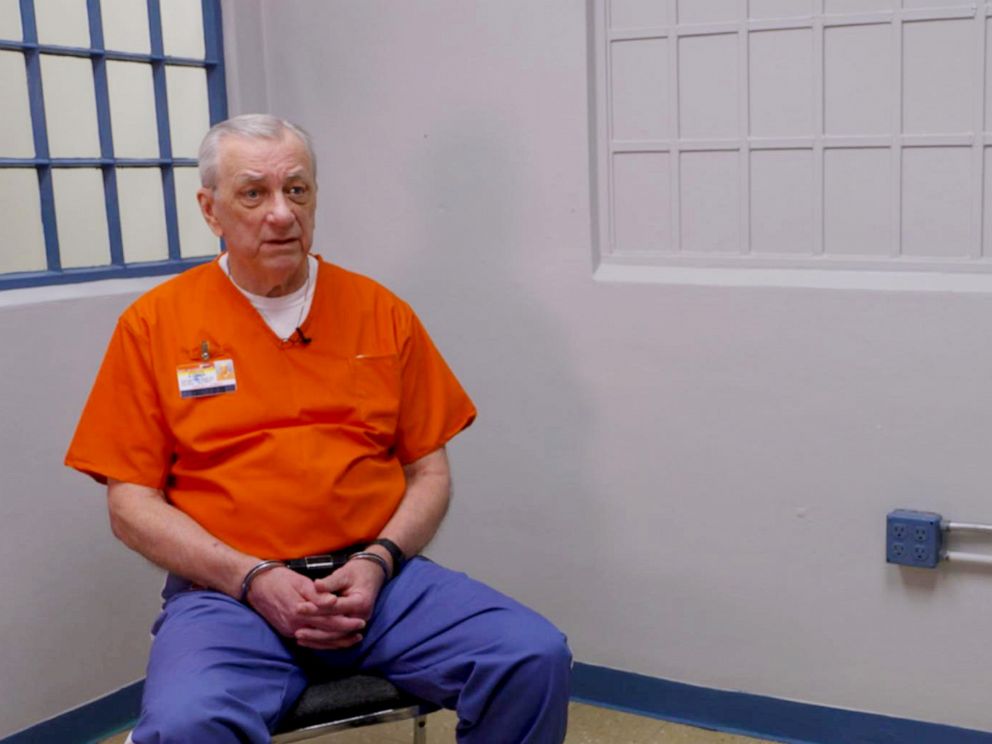
Editor’s note: This story was updated to reflect that Paul Skalnik claimed in his testimony during trial that James Dailey told him it was Jack Pearcy who held Shelly Boggio’s head under water.




